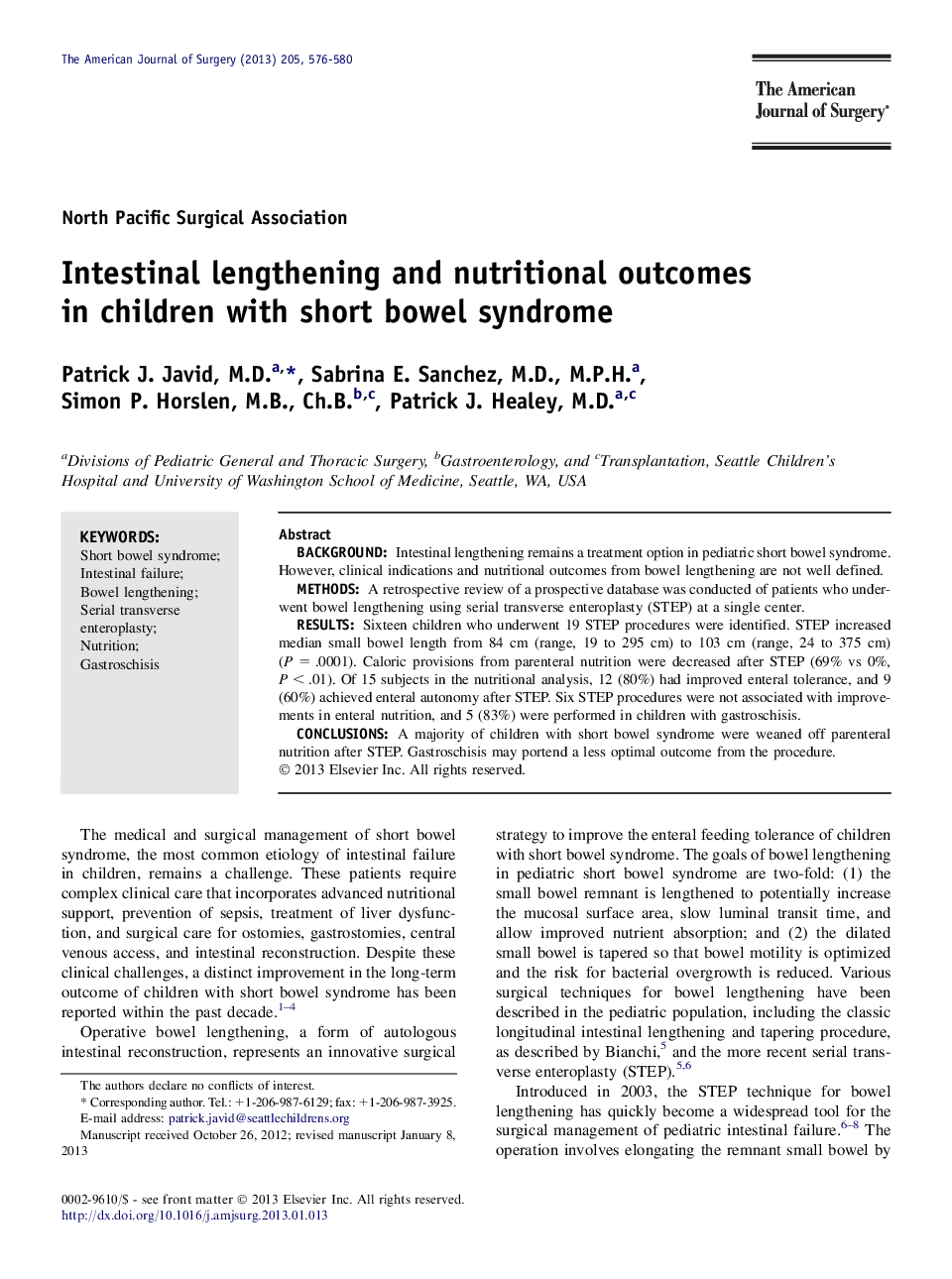| Article ID | Journal | Published Year | Pages | File Type |
|---|---|---|---|---|
| 4279272 | The American Journal of Surgery | 2013 | 5 Pages |
BackgroundIntestinal lengthening remains a treatment option in pediatric short bowel syndrome. However, clinical indications and nutritional outcomes from bowel lengthening are not well defined.MethodsA retrospective review of a prospective database was conducted of patients who underwent bowel lengthening using serial transverse enteroplasty (STEP) at a single center.ResultsSixteen children who underwent 19 STEP procedures were identified. STEP increased median small bowel length from 84 cm (range, 19 to 295 cm) to 103 cm (range, 24 to 375 cm) (P = .0001). Caloric provisions from parenteral nutrition were decreased after STEP (69% vs 0%, P < .01). Of 15 subjects in the nutritional analysis, 12 (80%) had improved enteral tolerance, and 9 (60%) achieved enteral autonomy after STEP. Six STEP procedures were not associated with improvements in enteral nutrition, and 5 (83%) were performed in children with gastroschisis.ConclusionsA majority of children with short bowel syndrome were weaned off parenteral nutrition after STEP. Gastroschisis may portend a less optimal outcome from the procedure.
